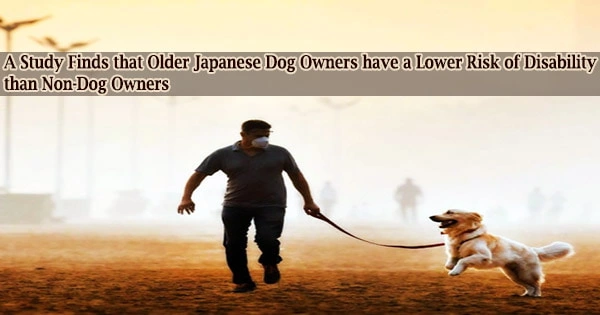According to a study of over 11,000 older Japanese citizens, seniors who keep a dog had a lower chance of handicap than those who have never owned a dog. On February 23, 2022, Yu Taniguchi and colleagues from the National Institute for Environmental Studies in Tsukuba, Japan, publish their findings in the open-access journal PLOS ONE.
These researchers have previously connected dog ownership among Japanese seniors to a lower incidence of frailty, a relationship that appears to be partially explained by higher levels of physical activity and social functioning among dog owners. Physical frailty, according to other study, considerably increases the chance of eventual impairment.
Taniguchi and colleagues used questionnaires to collect data on dog and cat ownership from 11,233 Japanese adults aged 65 to 84 in order to better understand the association between dog ownership and the risk of impairment.
They also gathered demographic, disability, and other health information from the participants from June 2016 to January 2020. They were able to investigate potential correlations between dog ownership and disability risk using statistical analysis of the combined datasets.
Dog ownership protects against the onset of disability in older adults. The daily care, companionship and exercise of a pet dog may have an important role to play in successful aging.
Yu Taniguchi and colleagues
The researchers discovered that current dog owners were nearly half as likely to have a disability as those who had never owned a dog throughout the study period.
Even after accounting for other sociodemographic and health characteristics that potentially influence disability risk, such as marital status, history of chronic diseases, time spent outdoors, and more, the association remained. Furthermore, dog owners who exercised their dogs on a regular basis had a lower chance of handicap.
Cat ownership, on the other hand, was not linked to a lower chance of handicap, and neither dog nor cat ownership was linked to a lower risk of mortality from any cause, according to the researchers.
This study suggests that dog ownership, especially when combined with regular exercise, may prevent older Japanese persons from impairment. These findings may be useful in guiding efforts to promote healthy aging.
In the meantime, future research may look into the physical or psychological mechanisms via which dog ownership may bring benefits, or look into the links between dog ownership and disability risk in different nations.
The authors add: “Dog ownership protects against the onset of disability in older adults. The daily care, companionship and exercise of a pet dog may have an important role to play in successful aging.”
















